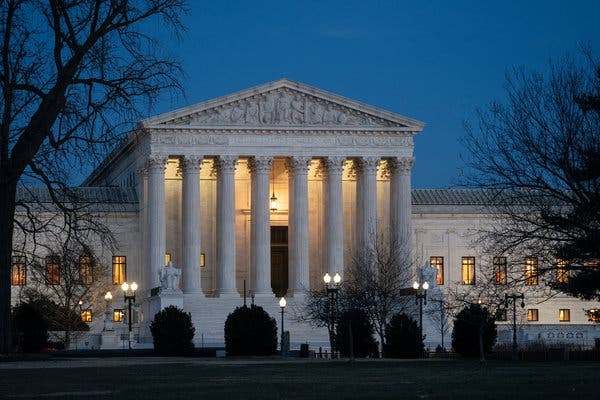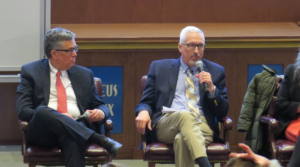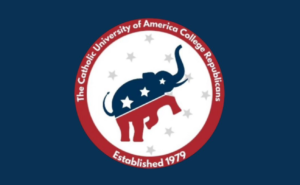Supreme Court Votes to Allow Trump’s “Wealth Test” for Immigrants

Courtesy of The New York Times
By Jeremy Perillo
While Chief Justice John Roberts was presiding over the impeachment trial of President Donald Trump, the Supreme Court voted to end an injunction that challenged Trump’s plan to bar immigrants who get federal assistance. On Monday, January 27th, the justices voted 5-4, along ideological lines, after a lower court judge in New York imposed an injunction last August.
The ruling stems from the Trump administration altering the criteria for who can be considered a dependent of the U.S. government, or “public charges.” The “wealth test,” as it has been called by Trump’s critics, would disqualify immigrants from obtaining a green card if they use government-funded benefits, including Medicaid and food stamps. It will also allow the government to consider factors like an immigrant’s household income and education when considering someone’s application for permanent residency or a temporary visa.
Federal officials say the rule ensures that immigrants can cover basic expenses like food and housing, without burdening taxpayers. Officials note that the change is not retroactive and does not include refugees who fled to the United States, reported The Washington Post.
While those opposed to this ruling, and the rule established by the Trump presidency, those in his administration have focused their celebrations on condemning so-called activist judges. Ken Cuccinelli, Principal Deputy Director of the U.S. Citizenship and Immigration Services agency and Acting Deputy Secretary of Homeland Security made remarks on the topic, which was reported by Reuters.
“It is very clear the U.S. Supreme Court is fed up with these national injunctions by judges who are trying to impose their policy preferences instead of enforcing the law,” he said “I hope some of these activist district court judges will finally get the message that they need to deal with the law and not their policy preferences.”
Justice Neil Gorsuch seemed to feel similarly to Cuccinelli, as he wrote a concurring opinion alongside Justice Clarence Thomas, expressing concern for the repercussions that come along with using nationwide injunctions whenever a judge doesn’t agree with a certain political policy.
“As the brief and furious history of the regulation before us illustrates, the routine issuance of universal injunctions is patently unworkable, sowing chaos for litigants, the government, courts, and all those affected by these conflicting decisions,” Gorsuch wrote.
Since the ruling, critics have looked at the ironies within Trump’s ancestral history. The grandfather of the 45th President of the United States, Friedrich Trump, immigrated to New York from Germany in 1885. According to the book “The Trumps: Three Generations That Built an Empire ” by Gwenda Blair, he arrived in the United States with a suitcase full of clothes and could not speak English.
While it is unclear if Friedrich Trump would have been affected by the “public charge” rule, many see him as an example of the millions of immigrants who came to the United States with very little and were allowed to better their lives.
As Trump’s first term comes to an end, and with the possibility of a second term on the horizon, the role of the Supreme Court, and injunctions, will no doubt return. As our hyper-polarized political system continues to function, the U.S. government will continue to look to the Supreme Court to make difficult and contentious decisions.







